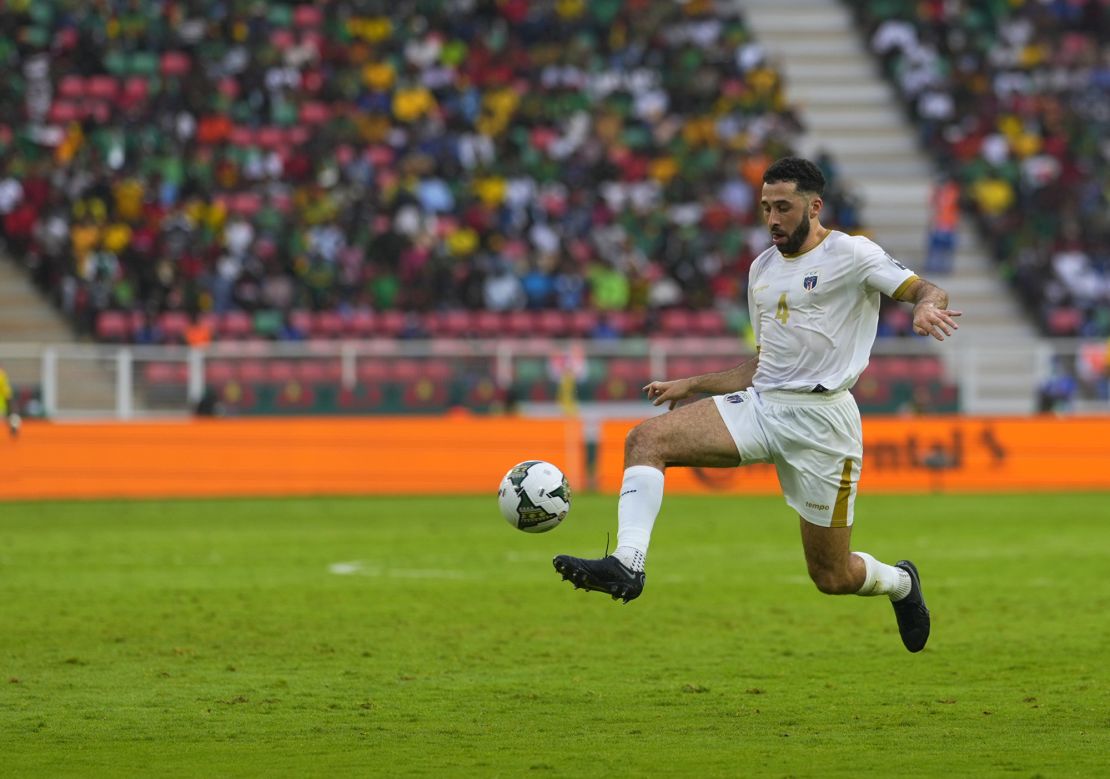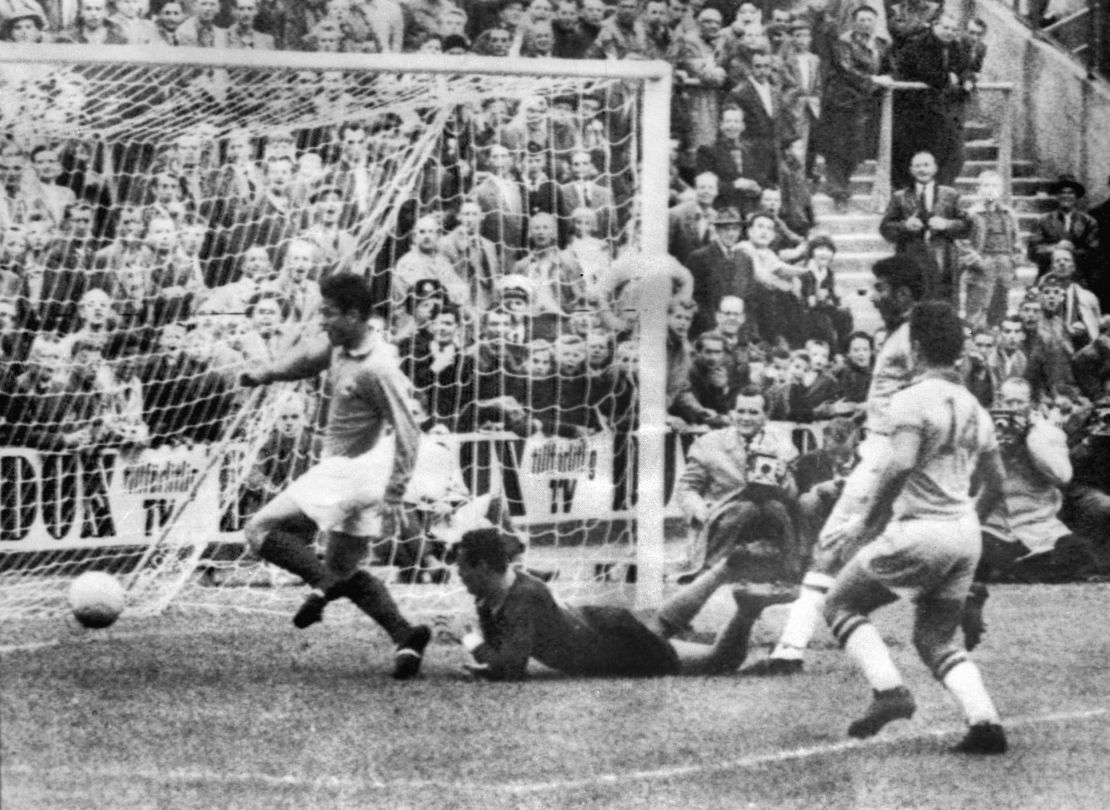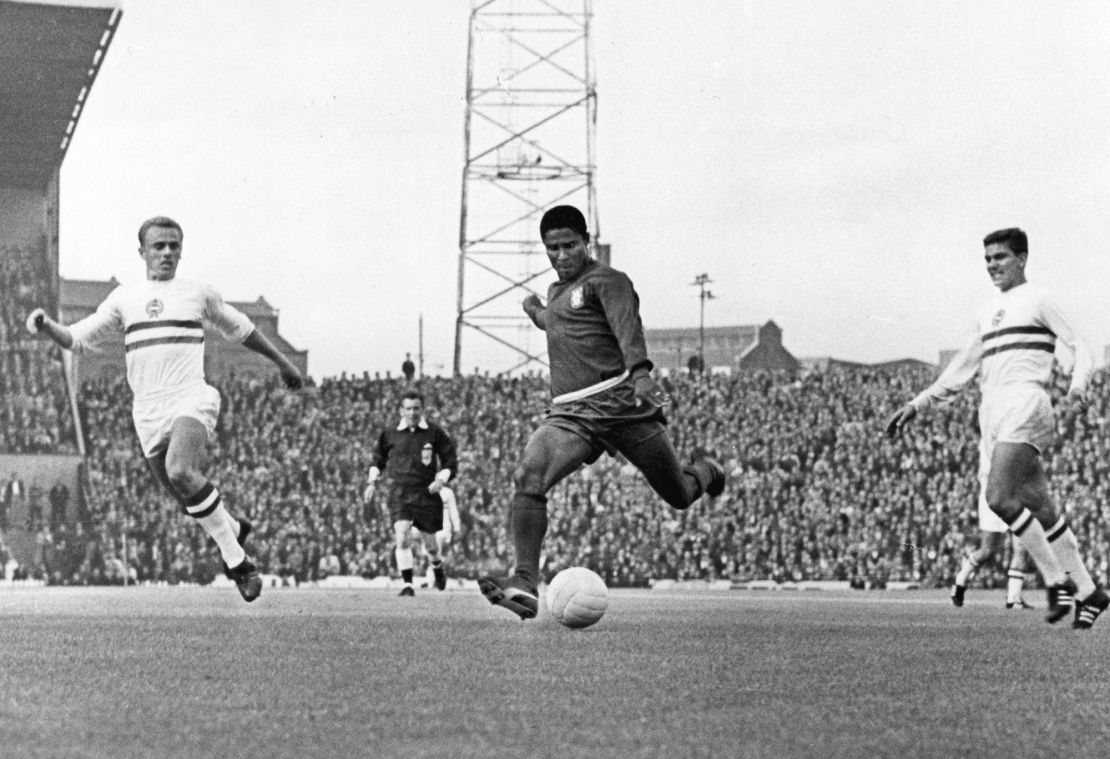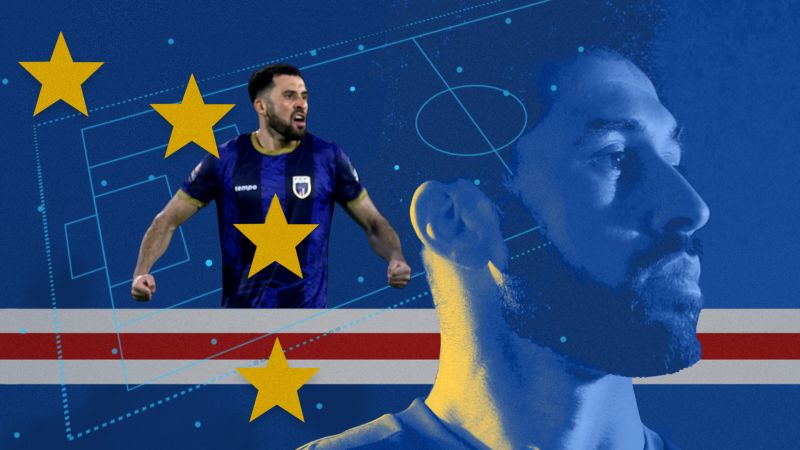Born and raised in Dublin, Roberto “Pico” Lopes had long given up hope of representing the Republic of Ireland at the senior international level, for whom he had starred at junior level.
Then, out of the blue, Lopes received a message on the social networking website LinkedIn. It was a message that not only transformed the Shamrock Rovers defender’s soccer career – paving the way for him to play for Cape Verde and feature in the continent’s leading tournament – but also his life.
“When I was in college, one of our modules required us to set up a LinkedIn account,” Lopes told CNN Sport ahead of the Africa Cup of Nations (AFCON), which runs between January 13 and February 11.
“And it ended up being through LinkedIn, maybe five or six years later, the manager at the time messaged me in Portuguese, which I didn’t understand. I just thought it was a welcome message … so I ignored it.”
Fortunately for Lopes, Cape Verde head coach time Rui Águas messaged the Shamrock Rovers defender again nine months later – this time in English – asking if he had considered his offer.

With the help of Google Translate, Lopes realized that he had been offered the chance to represent the small archipelago’s national team.
Soon after Lopes made his first appearance for Cape Verde, and four years later, he is preparing to play at his second successive AFCON with the Tubarões Azuis (the Blue Sharks) having amassed 18 caps.
Lopes comes into the tournament after a fourth successive league title in Ireland with Shamrock Rovers. He was the only Rovers player to make the Professional Footballers Association of Ireland’s team of the year, which is decided on by votes from players in the Irish top flight.
But at the Africa Cup of Nations, he’ll be testing himself against some of the world’s best forwards, including Liverpool’s Egyptian international Mohamed Salah. Egypt is in Cape Verde’s group along with Ghana and Mozambique.
Lopes won’t be alone at AFCON in representing an international team via the ancestry of their parents or grandparents – more than 100 players will be taking part in the tournament thanks to world soccer governing body’s FIFA’s nationality eligibility rules.

A 21st century reversal of soccer migration
Since the arrival of soccer in Africa in the late 19th century, players have represented nations that they weren’t born in, but up until the late 20th century, it was almost exclusively African-born players representing colonizing nations. France’s captain at the first ever World Cup in 1930 was Algerian-born Alexandre Villaplane.
Just Fontaine, who scored a record 13 goals at the 1958 World Cup for France and was named the greatest French soccer player of the second half of the 20th century by European soccer governing body UEFA, was born in Marrakech and only left Morocco as a 20-year-old.
One of the world’s greatest ever players, Eusébio, was born and raised in Mozambique to a Mozambican mother and Angolan father before going on to dominate European club soccer with Benfica and take a Portuguese team full of African-born players to a third-place finish at the 1966 World Cup.

Fast-forward to 2023 and with so many African players featuring in European soccer this season, the most common surname in the English Premier League is Traoré.
Some African nations like Morocco and Algeria were quick to embrace players born outside of their borders. Others like Tanzania, prior to 2024, had never taken a European-born player to AFCON.
But having recently reversed that policy, the Taifa Stars will have a number of players born outside the continent in its squad for the 2024 tournament.
Almost all African sides now scout for potential talented players born abroad.
Some, like Morocco, have hired full-time professionals to scour European nations to help find prospective eligible young talent, while other nations have leaned on their former stars to meet with and charm players to potentially consider changing their soccer nationality.
Samuel Eto’o, considered by many to be the greatest African player of all time and current president of the Cameroon soccer federation, spent months ahead of the World Cup in 2022 traveling around Europe courting players with Cameroonian roots, notably Brentford star Bryan Mbeumo.
Changing nations, a complex issue
Lopes always wanted to play for Ireland, but when that dream ended, it was a no-brainer for him to play for his father’s homeland.
For others, such as Brentford star Yoane Wissa, the Democratic Republic of Congo (DRC) forward only ever wanted to represent the central African nation.
“I’m proud [to represent DRC],” Wissa recently told CNN Senior Sport Analyst Darren Lewis. “I think about my parents. What happened when they came to France because it was not easy. That’s why I’m proud. They [his parents] kept my mind African because you can see from my skin that I’m from Africa.”
For Wissa and many other soccer players who have played for African teams, the prejudice they and their parents have faced in Europe was an added incentive regarding which country they chose to play for.
Former Cameroon and Tottenham Hotspur defender Benoît Assou-Ekotto turned down the opportunity to play for France’s youth teams, instead opting to play for the Indomitable Lions. Despite being born and raised in France, Assou-Ekotto says he was never made to feel French.

“Even if my mom is from Poland, most of the people will say, ‘You’re Black, you’re from Cameroon.’ So it was very difficult to find the love in this country,” Assou-Ekotto told the ‘On The Whistle’ podcast.
“When I went to Cameroon, no one said, ‘You were born in France, you’re French.’ Everyone said, ‘You’re a son of this country,’” added Assou-Ekotto.
But not all players find the transition of playing for their parents’ home country easy, often citing the lack of infrastructure and professionalism in the teams.
Everton midfielder Abdoulaye Doucouré made his debut for Mali in the 2022 World Cup qualifiers but left the team after only making two appearances, citing issues behind the scenes.
One of the players initially expected to star at this year’s tournament in Ivory Coast, Wilfred Zaha, was a surprise omission from the Ivorian national team, having only made a handful of appearances for the host nation in 2023.
Previously, he had asked not to be called up to the Les Éléphants squad, with former head coach Patrice Beaumelle saying that the Galatasaray star had been “homesick.”
A family matter
However, playing for Cape Verde has proven to be a life-enhancing experience for Lopes.
With every international break, his Portuguese Creole improves, as does his understanding of what it means to be a Cape Verdean.
“The most recent qualifiers was probably the most Cape Verdean that I’ve felt,” says Lopes. “When I came home after that trip, there was this amazing feeling. I feel like I’m accepted as a Cape Verdean.”
Carlos ‘Caluccha’ Lopes, Roberto’s father, left Cape Verde at the age of 16 to work as a chef on international transport ships for 15 years before eventually settling in Dublin with Roberto’s Irish mother.
But with Lopes now representing the Blue Sharks, the Cape Verde international says his father has been able to reconnect with the nation he left so long ago.
“Aye, he’s so proud which is great,” smiles Roberto.
“It’s brought more of the Cape Verdean side out in him, and he’s constantly giving me updates of back home and how my cousins are doing.”
Thanks to his now regular visits to Cape Verde, Lopes has also connected with his cousins.
He has plans to visit Cape Verde in the offseason to spend more time on the islands and see his grandfather, who hasn’t been able to make it to the 31-year-old defender’s matches.
But first, Lopes has the little matter of the Africa Cup of Nations to attend to.

